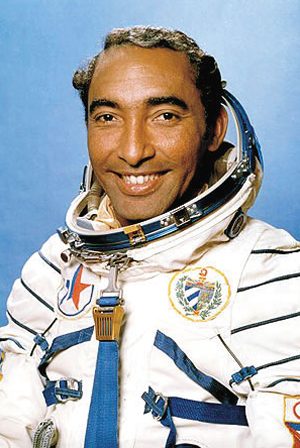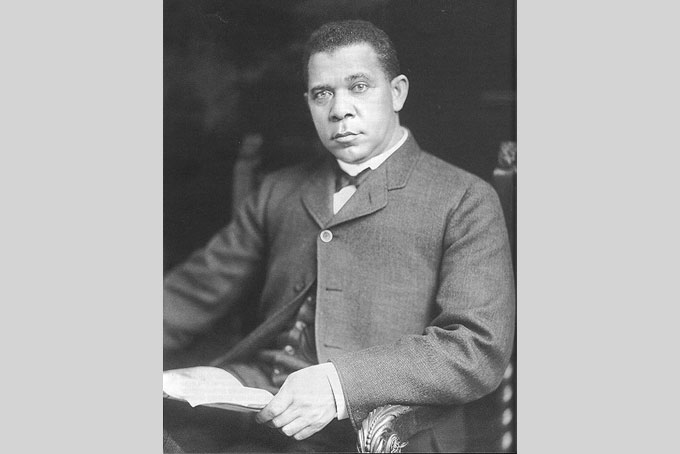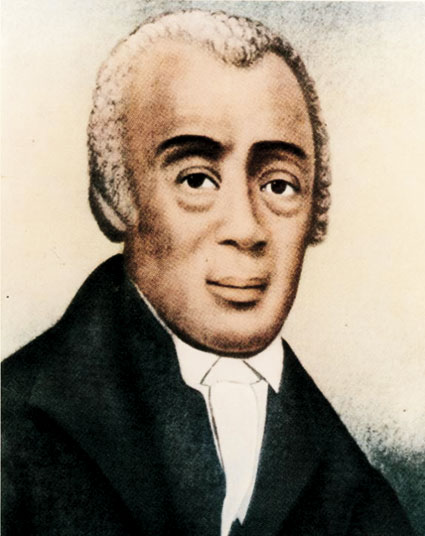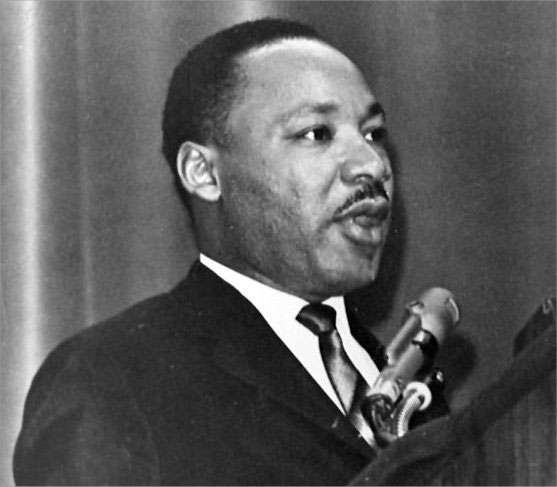
For the week of Sept. 18-24
1980—Cuban cosmonaut Arnold Tamayo becomes the first Black person to fly on a space mission. He flew on a space craft from the then-Soviet Union.
For the week of Sept. 18-24
1850—Congress passes the Fugitive Slave Law as part of the Compromise of 1850. The Compromise was essentially a vain attempt to reconcile differences between the slave states of the South and the free states of the North as to whether Midwest states would be slave or free. The law basically required Free states to help slave states capture escaped slaves.

1895—Booker T. Washington delivered his famous (or infamous) “Atlanta Compromise” speech in which he promotes Black economic betterment at the expense of civil and political rights. The speech endeared him to Whites opposed to the social integration of Blacks, but it angered progressive Blacks, including scholar W.E.B. DuBois, who began to portray Washington as an “Uncle Tom.”
1980—Cuban cosmonaut Arnold Tamayo becomes the first Black person to fly on a space mission. He flew on a space craft from the then-Soviet Union.
September 19
1865—Atlanta University is founded in Atlanta, Ga. It was one of many educational institutions established during the Reconstruction period after the Civil War to educate former slaves.
1981—An estimated 400,000 people from various labor and civil rights organizations rally in Washington, D.C., to protest the domestic policies of President Ronald Reagan. His policies were viewed by the demonstrating groups as anti-Black and opposed to the best interests of working-class people.
September 20
 1664—Maryland enacts the nation’s first “Anti-Amalgamation Law.” It specifically outlawed marriages between Black men and White women. Soon, several other colonies followed the Maryland example. It would not be until the 1960s that U.S. Supreme Court in the famous Loving v. Virginia case declared all such laws un-Constitutional. And even though it was not being enforced, it was not until 2000 that Alabama officially became the last state to strike from the books its law banning interracial marriages.
1664—Maryland enacts the nation’s first “Anti-Amalgamation Law.” It specifically outlawed marriages between Black men and White women. Soon, several other colonies followed the Maryland example. It would not be until the 1960s that U.S. Supreme Court in the famous Loving v. Virginia case declared all such laws un-Constitutional. And even though it was not being enforced, it was not until 2000 that Alabama officially became the last state to strike from the books its law banning interracial marriages.
1830—The first National Negro Convention of Free Men meets in Philadelphia, Pa. Among a wide range of items on the agenda was a resolution encouraging free Blacks to boycott the purchase of items produced by slave labor. AME Church founder Richard Allen was elected president of the convention. Despite the fact that Allen had founded the African Methodist Episcopal Church, the name of the convention also reflected an attempt by free Blacks to reduce identification with Africa. At the time, most slaves and many free Blacks tended to refer to themselves as “Africans.”
1958—A deranged woman stabs then-rapidly emerging civil rights leader Martin Luther King Jr. during a book signing ceremony at a Harlem, N.Y., department store. Rumors circulated that the stabbing was part of a government conspiracy against King but no evidence was ever produced to support the theory.
1984—“The Cosby Show,” starring comedian and activist Bill Cosby, debuts on NBC Television. It becomes one of the nation’s highest rated television series and was widely praised by civil rights activists because of its generally positive portrayal of a Black middle-class family.